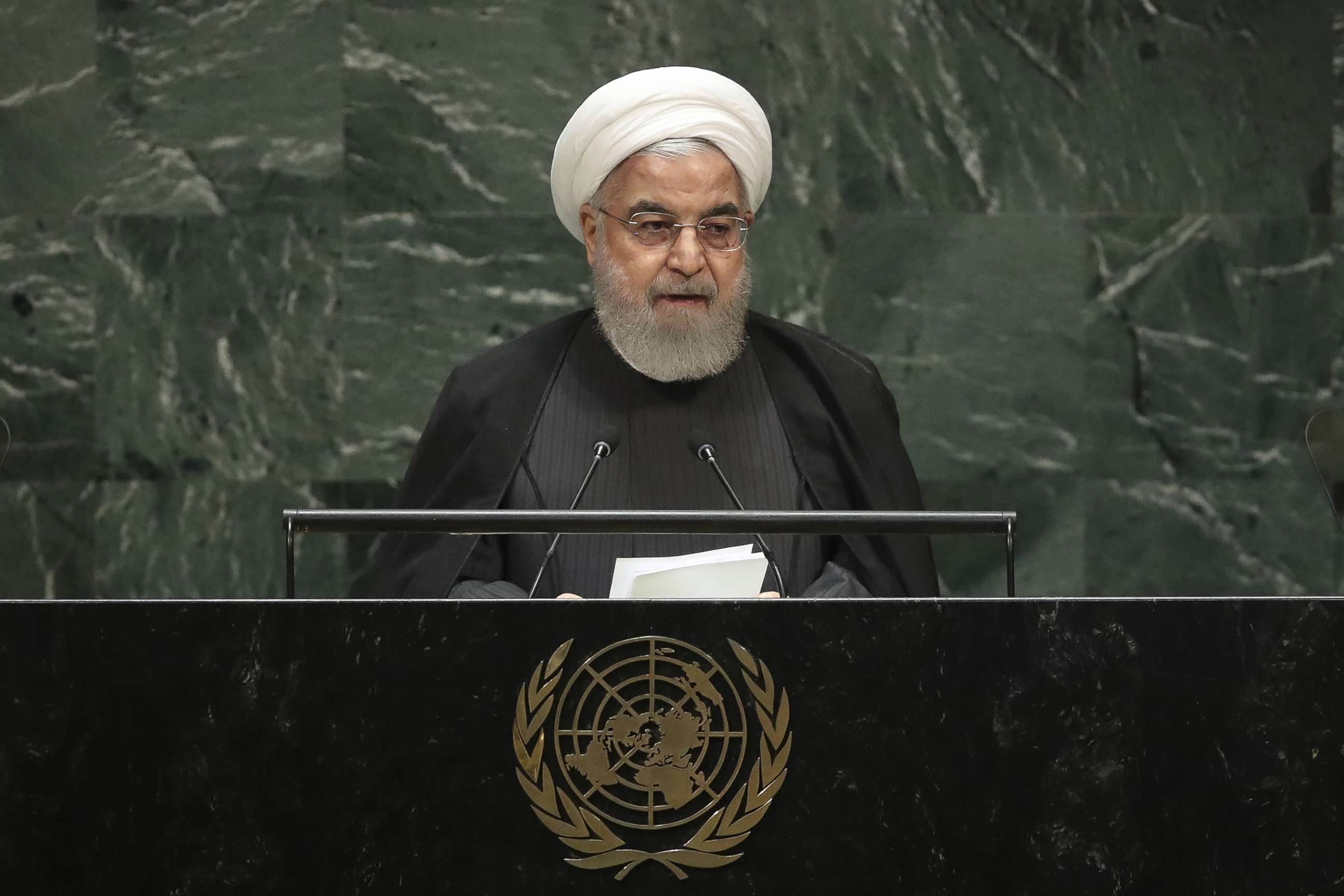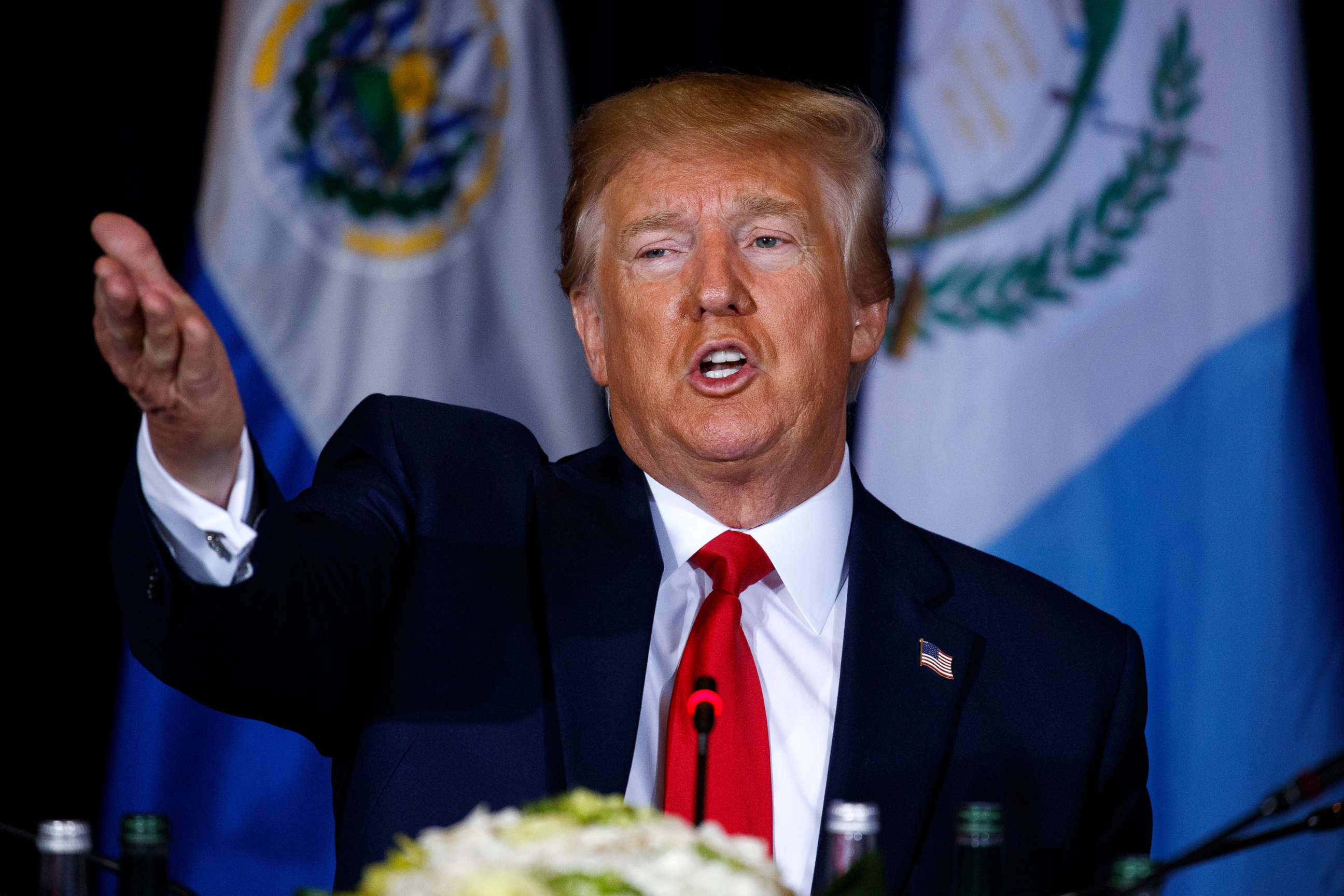Iran President Hassan Rouhani tells ABC News' David Muir that 'trust' must be restored before meeting with Trump
President Hassan Rouhani blamed U.S. president for instability among nations.
In a one-on-one sitdown interview, Iranian President Hassan Rouhani explained to "World News Tonight" anchor David Muir why he would not be meeting with President Donald Trump.
"America has put a precondition for talks. Our position is for them to take away these preconditions," Rouhani said through a translator on Wednesday. "America says that it will put Iran under maximum pressure until we talk and negotiate. ... America must do away with that precondition, take away all of the sanctions, and maximum pressure and wish to conduct talks. Then, in a free and responsive atmosphere, only then, I think these...efforts will bear fruit between the two countries."
Rouhani also told Muir that he blamed the U.S. government for causing instability in the original nuclear deal when it pulled out in May 2018 and for a lack of trust among the nations.
"They went back on their commitments, of the commitments given by the American government, and against [U.N. Security Council] Resolution 2231," Rouhani said. "We waited for one year, despite the fact that the Europeans had promised us to make up for the absence of the United States of America within this agreement. ... Since then, they were unable to deliver on those promises. Therefore, we announced, clearly, that according to Articles 26 and 36 of the [Joint Comprehensive Plan of Action], it says that, if the counterpart...decrease[s] its commitment, we also reserve that right."

Rouhani said, however, that the International Atomic Energy Agency has continued to conduct oversight on Iran's nuclear facilities.
In August, President Trump said he would be open to a meeting with Rouhani after it was proposed by French President Emmanuel Macron.
Muir told Rouhani on Wednesday that, according to a spokesperson in Tehran, there had been an effort between Iranian and European diplomats to arrange a meeting between Rouhani and Trump in New York. Rouhani was asked why that meeting did not happen.

"Whether we speak to America or we don't is because [of] us and America. Perhaps one day we decide to speak to one another, perhaps one day we decide not to speak to one another," Rouhani said.
He said Iran did not want the Europeans to be "intermediaries" between the U.S. and Iran.
Muir then asked whether Rouhani would call Trump.
"Mr. Trump would be wiser to go back to the commitments given by the United States of America in the year 2015 and live up to those commitments fully. ... He must give valid reasons for trampling upon such commitments without a valid reason [for] why he has decided to trample upon and violate UN Security Council Resolution 2231. So this must be explained to the officials at the United Nations. ... So the ball today is in the field of the United States of America," he said. "The fundamentals between the United States and Iran is that for trust to be restored."
Rouhani, who addressed the UN General Assembly on Wednesday, told Muir that he did not see it as "productive or positive" for the two leaders to sit down and talk.
"What I think has really happened in Mr. Trump's administration is not a matter of destroying the [Joint Comprehensive Plan of Action], but more important than that, what has been destroyed is trust between the two sides, and even between the United States and other countries. ... There are a variety of commitments that have been violated," Rouhani said.
"The United States of America has decreased its trust vis-à-vis most of the world. This is not to the benefit of the American people or the American government," he added. "America must return to its commitments, including the [Joint Comprehensive Plan of Action], so that what was created in the form of a gap of trust between the two countries can be mended."




